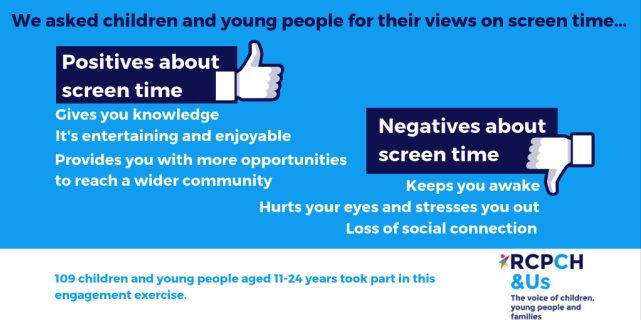Many parents worry about how much time their children should spend staring at screens. Nowadays, we’re surrounded by televisions, smartphones, tablets, gaming consoles and computers.
If you’ve ever seen a previously fractious toddler glued to Peppa Pig, or a teen utterly engrossed in Fortnite, you might also have experienced the anger and frustration when it’s switched off. Their reactions do make you wonder about the impact of screens.
On one hand, screens are blamed for disrupting sleep, decreasing exercise, increasing obesity, shortening attention spans, limiting language development, exposing children to harmful content, damaging mental health and encouraging cyberbullying and exploitation.
But the internet is also an enormous help with education, from playing spelling and times tables apps to researching homework. Computer games can encourage problem solving, strategic thinking, manual dexterity and the chance to bond with friends. Social media can help kids keep in touch with family and friends and meet new people. Screens are also a great source of creativity via recording films, composing music, coding and animation.
Let’s face it, screen time can also be huge fun. Entertaining, interesting and a lot less effort than finding something else to do.

“Our primary recommendation is that families should negotiate screen time limits with their children based upon the needs of an individual child, the ways in which screens are used and the degree to which use of screens appears to displace (or not) physical and social activities and sleep.”
– Spokesman for the Royal College of Paediatrics and Child Health
So, short of binning every screen in the house, what are parents to do?
Recent reports reviewing scientific research by the UK’s chief medical officers and the Royal College of Paediatrics and Child Health stopped short of recommending a ‘safe’ level of screen time.
But fundamentally, we all have limited time. It’s a good idea to make sure screen time isn’t blocking out socialising, exercise and sleep.
If you would like to manage how much your children use screens, here are some practical suggestions:
- Discuss different types of activity online. You might want to differentiate between for example doing homework on the internet and playing shoot ‘em up computer games.
- Negotiate any screen time limits, then stick to them consistently
- Set screen time limits before giving your child a new device.
- Make mealtimes a ‘screen free’ zone.
- Avoid screens for an hour before bedtime.
- Monitor what is eaten in front of a screen, as it’s easier to lose track.
- Watch screens with your kids, for a shared experience of a film, game or video.
- Introduce regular breaks
- Provide opportunities for alternative activities, from playing board games to getting outside for exercise.
- Respect age certificates on games and films.
- Set parental controls, to limit exposure to harmful content.
- For shared devices, keep them in communal areas and set up different accounts with different controls.
- Talk to your children about staying safe online. Check out the NSPCC materials on online safety and NetAware for a guide to social networks.
- Encourage your kids to talk to you about anything worrying they see onscreen, without fear that you’ll just remove their devices.
- Set a good example. No point lecturing your child about less screen time if you’re glued to your own smartphone.
- Praise your kids, and potentially reward them, for sticking to any agreements about screen time.
RoosterMoney can help if for example you want to reward kids with extra screen time. You could use stars as a currency, so that each time they earn a star, they get an extra 15 minutes.
Computers have created previously undreamt of opportunities for our children. But as with so many things in life, it’s all about balance!
Got any ideas or suggestions for what we cover next? Let us know at hello@roostermoney.com and it might get featured in a future blog!